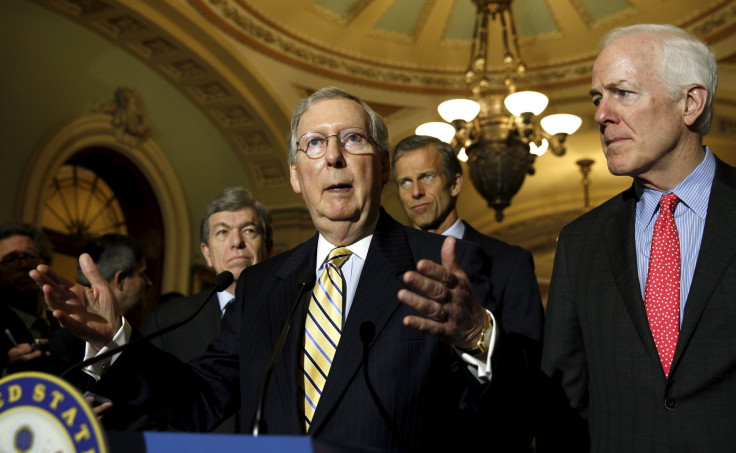TPA: Senate Passes Obama Trade Agenda Authorization

WASHINGTON -- President Barack Obama’s trade agenda legislation passed the Senate, setting up a fight in the House over giving the White House more authority to negotiate new deals. The bill -- called Trade Promotion Authority -- faced staunch opposition from members of the president’s own party, who worked unsuccessfully for weeks to sink the legislation.
Sens. Elizabeth Warren, D-Mass., and Sherrod Brown, D-Ohio were unable to prevent the legislation from clearing its final 60-vote hurdle on Friday evening. And shortly after 9 p.m., the Senate voted to pass the bill 62 to 37. The vote took place at an unusually late hour the day before the Senate was set to depart on a weeklong recess for the Memorial Day holiday, compounded by ongoing disputes in the chamber over whether to renew the Patriot Act.
Senate Majority Leader Mitch McConnell, who helped shepherd the bill to passage, was determined to get it completed before the recess to send a message to trade negotiators that the Senate was on board with a deal. "Tonight’s vote shows that Republicans and Democrats can stand strong, together, for the Middle Class; it’s yet another example of a new Congress that’s back to work on behalf of the American people," McConnell said in a statement.
Now the fight to pass Trade Promotion Authority -- which will give this president and the next more flexibility to negotiate trade deals -- awaits lawmakers in the House. Speaker John Boehner plans to bring the bill for a vote, but it remains unclear if it can pass with many Democrats plus several conservative Republicans in opposition. Democrats in the House have echoed many of the same concerns as their colleagues in the Senate. And adding a more complicated twist, conservative Republicans have suggested they could oppose the legislation because they are uncomfortable giving Obama any more power, even if it’s on a subject where he is in agreement with most of their party.
For the Senate, much of the dispute was over the Trans-Pacific Partnership, a trade deal with several nations that the Obama administration is currently negotiating with. Trade Promotion Authority -- or TPA -- will allow Obama to more easily strike a deal without concerns that Congress will unravel it when it comes before them for their approval. But that also means Democrats who oppose the trade deal will have little power to stop any deal Obama strikes. The TPA will require an up or down vote on the trade deal and prevent any senator from filibustering it.
Critics like Brown and Warren have argued that the Trans-Pacific Partnership -- or TPP -- will cost American jobs in manufacturing and unravel some financial reforms that have been put in place. They also argued that the deal does not do enough to prevent currency manipulation, which they argue is a tactic used by foreign nations to artificially deflate the cost of goods created within their borders and undermine competition with American producers. An attempt by Brown and Warren to include an amendment that would address currency manipulation failed in the Senate.
Supporters of TPP -- including Obama and most Republicans -- argue that it will increase American jobs by opening up more global markets and advance several strategic defense goals by not allowing China to gain outsize influence in Southeast Asia.
Another criticism of TPA is that the deal will easily stretch for the next six years. It can be reauthorized in three years for an additional three years without the risk of a filibuster. Democrats have expressed concern that if a Republican takes the White House and the GOP retains control of Congress, there will be little way to stop any future trade deals.
© Copyright IBTimes 2024. All rights reserved.






















